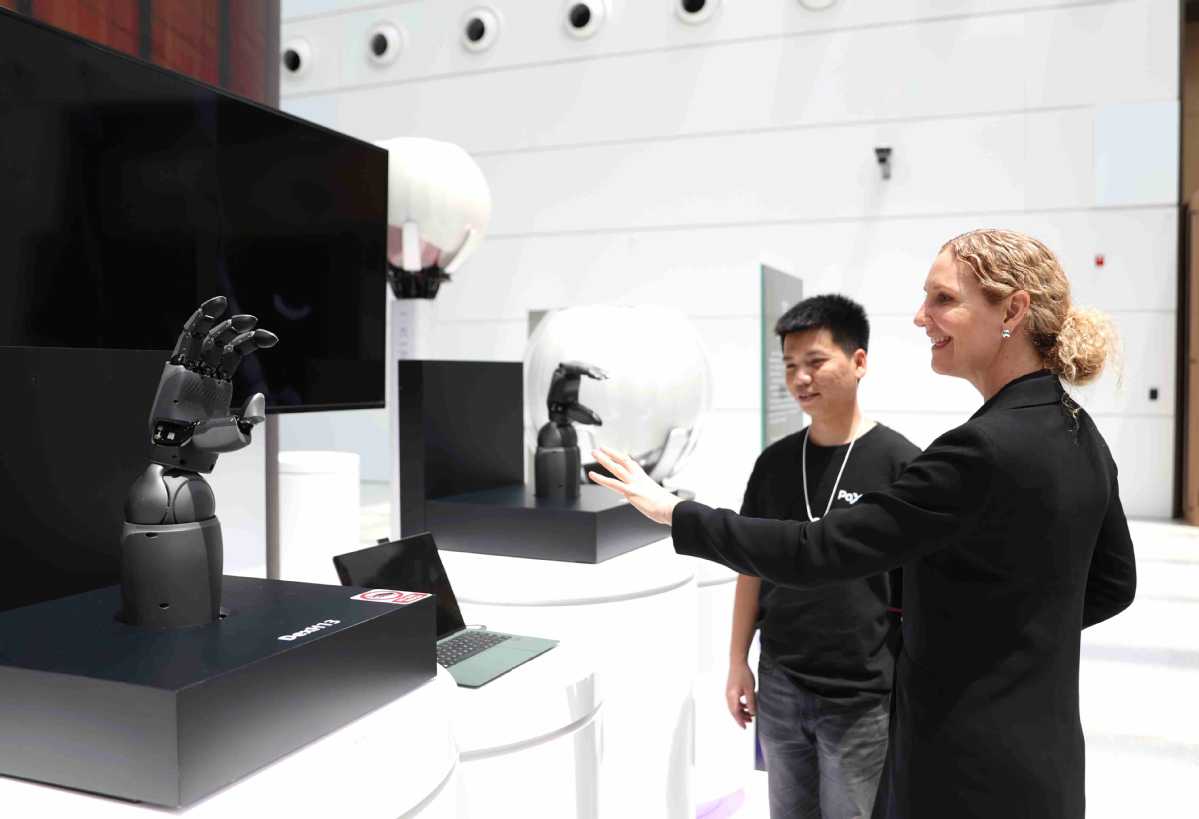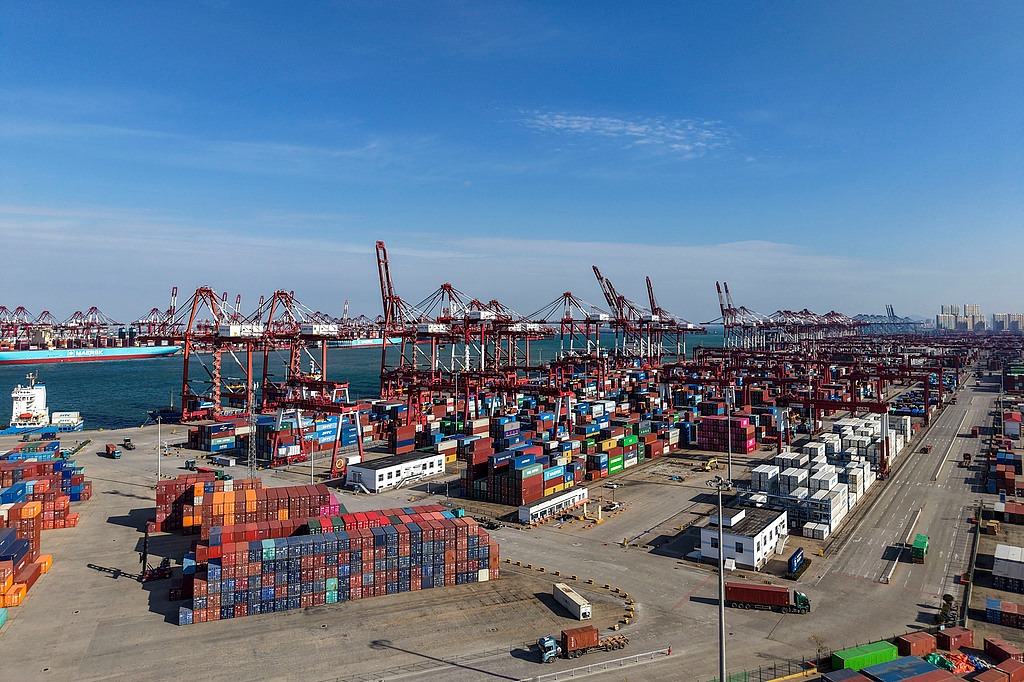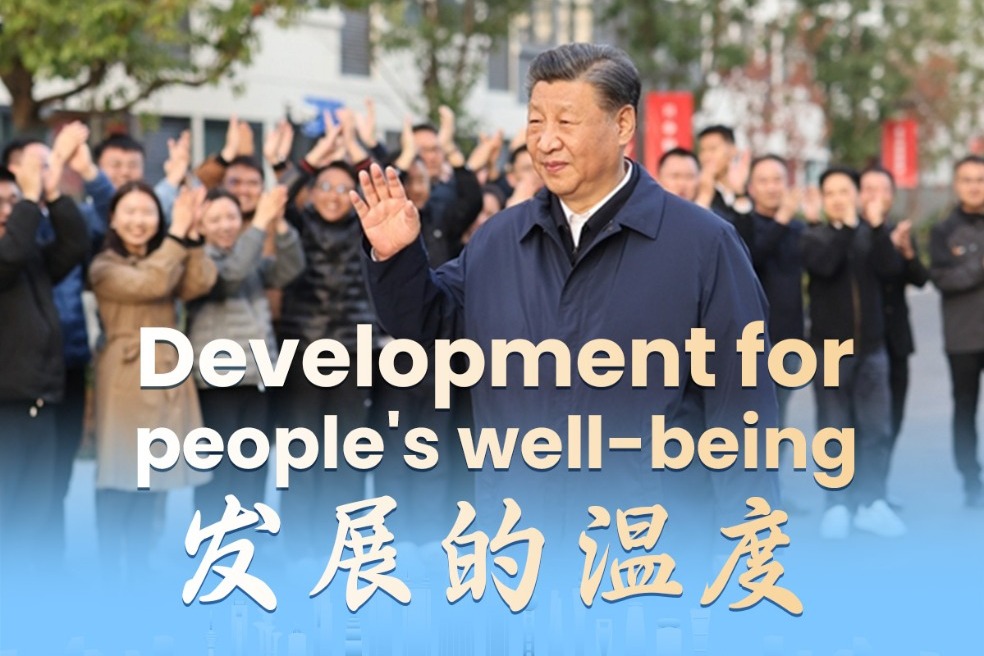AI giving China edge in business
Nation at forefront of technology; recognizes nascent sector as essential tool in fostering new quality productive forces, growth


"Looking at the vibrant AI ecosystem, we can say that China is not just an AI market — it's a proving ground for AI adoption by enterprises at scale."
Zhu's views were echoed by Karel Eloot, senior partner of McKinsey & Company.
China, Eloot said, has good technological infrastructure in terms of digitalization and AI, and has developed a world-class business-to-consumer ecosystem, laying a strong foundation for further innovation.
"Chinese companies have been very open to experiment with new things so that they can learn very fast," Eloot said, adding that Chinese firms are at the forefront of digital analytics and technology transformation. He said generative AI is very important for the future development of "lighthouse factories", which represent the highest level of global intelligent manufacturing.
"The application of AI in the high-tech manufacturing sector will bring about greater value than its use in terminal products, as this cutting-edge digital technology will significantly improve the production efficiency and competitiveness of China's manufacturing enterprises," said Li Dongsheng, founder and chairman of Chinese consumer electronics maker TCL Technology Group Corp.
Li said AI technology is increasingly embedded into terminal devices, intelligent production lines and product research and development, and will bolster the development of China's high-tech manufacturing sector.
He emphasized that China's recent breakthroughs in large language models, along with the meteoric rise of domestic AI startup DeepSeek, have enabled it to rapidly catch up with the US in the AI domain, while surpassing most other developed economies in terms of AI application.
Zhou Yunjie, chairman and CEO of Chinese home appliances giant Haier Group, said AI is expected to be the biggest technological revolution in the next 50 years. "At present, the deployment of AI in enterprises mainly concentrates on manufacturing, research and development, sales, procurement and services.
"Every industry will integrate with AI, and any enterprise that does not embrace AI will eventually be weeded out," Zhou said.
Haier has invested heavily in developing LLMs and is promoting the adoption of AI across various fields, such as household appliances and industrial internet, he added.
As AI is transforming the world and data centers are leading the way, US-based smart building solutions provider Johnson Controls is promoting timely, efficient and sustainable data center deployments across countries.
"China's focus on digitalization and decarbonization aligns seamlessly with Johnson Controls' core expertise. We are well positioned to support China's advancement in driving new quality productive forces," said Anu Rathninde, president of Johnson Controls Asia-Pacific.
He said China's economy is propelled by new energy, digital transformation and some key industries like smart manufacturing and modern services, which create a large number of opportunities for sustainable innovation. "We look forward to growing our business even further."
Cui Jingyi, vice-president and general manager of industrial software developer Aveva China, said China is becoming the market with the most extensive application of AI technologies globally, bringing new opportunities for many companies including Aveva.
Cui said China demonstrates exceptional vitality in innovation, with rich industrial application scenarios, a complete supply chain ecosystem, and a highly open and supportive technology environment.
"That's why Aveva is continuously increasing our investment in the Chinese market — especially in R&D — as we deepen our roots in this dynamic landscape and cocreate a smarter, more sustainable industrial future together," she said.
Aveva will continue to increase investments in China, leverage local strengths and drive industrial transformation through technological innovation, Cui added.
























